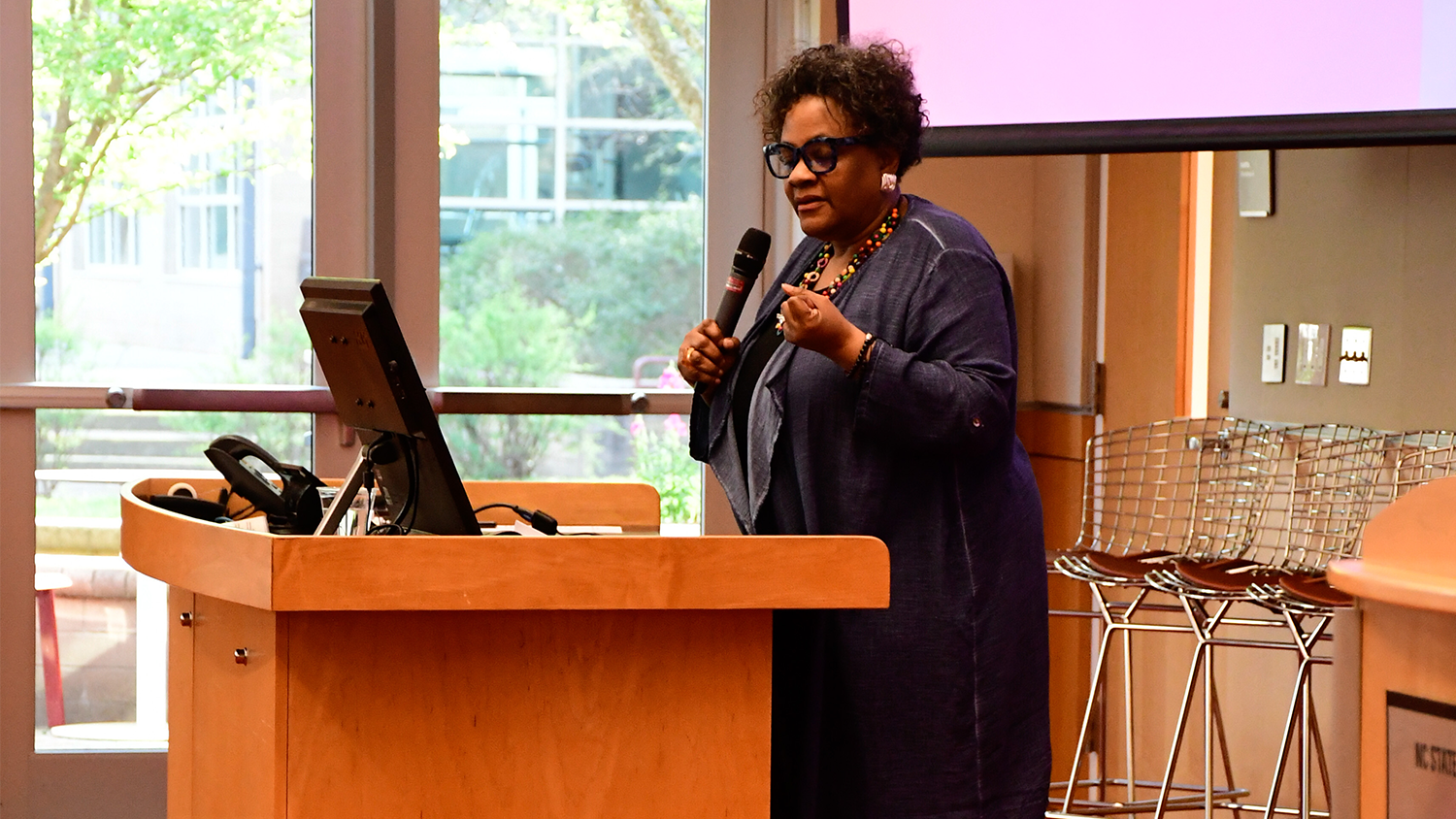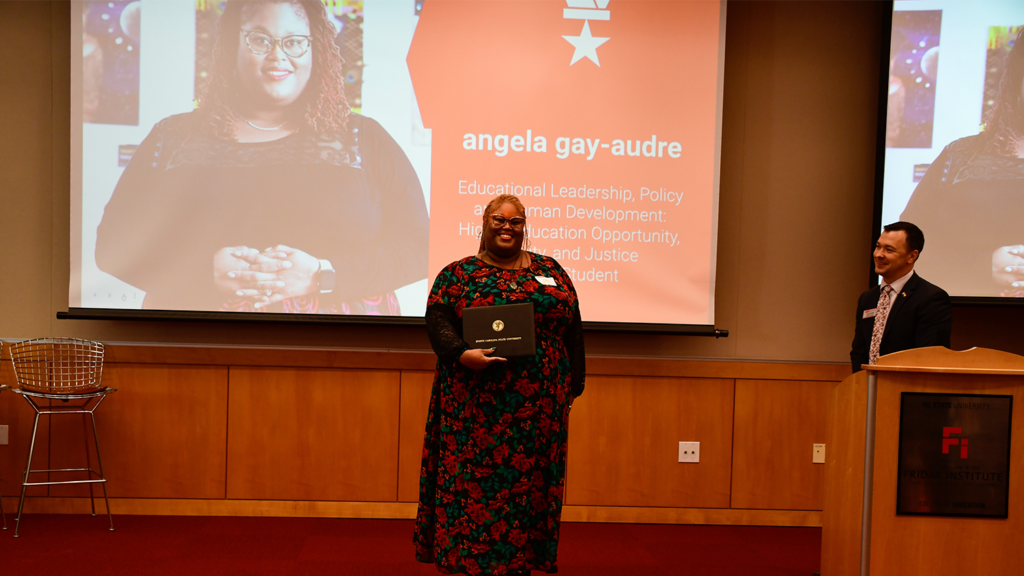‘This Work That Was So Important to Dr. Locke Was About Seeing and Hearing Everyone’: Cheryl Holcomb-McCoy Talks About Equity in Counseling During 5th Annual Don C. Locke Symposium

When Cheryl Holcomb-McCoy, dean and distinguished professor at the School of Education at American University, was a doctoral student, she cited longtime NC State College of Education Professor Don C. Locke throughout her dissertation research on multicultural competence in counseling.
Her advisor sent Holcomb-McCoy’s research to Locke, and she remembers the phone call she ultimately received from Locke in which he inspired and encouraged her to put more of herself into her writing.
“From that moment on, I always thought about what he told me. It’s the stories and narratives around the research [that are important],” she said. “He was digging deeper, and he saw me and he understood, and that was the first time that I felt that I was actually seen and heard.”
Holcomb-McCoy drew on Locke’s work, as well as her own, as the keynote speaker for the NC State College of Education’s 5th Annual Don C. Locke Multicultural and Social Justice Symposium on April 5. During her talk, she shared about how inequities among different groups of people are impacting schools and the counseling profession, as well as ways that counselors and educators can address the problems.
“This work … that was so important to Dr. Locke was about seeing and hearing everyone and ensuring that all people are included. Each of our journeys are different, but each of our journeys are important, and that is what Dr. Locke was so good at,” she said.
In addition to counselors understanding what each individual client might be experiencing in their own personal journey, Holcomb-McCoy said it is important for them to acknowledge the systemic issues that create wealth, health and educational opportunity gaps among various communities.
She also highlighted the areas in which school counselors traditionally work and where they have the power to change the narrative about historically underserved and underrepresented students:
- Academic: “We have to change students’ mindset from saying ‘I can’t do,’ particularly our Black and Brown students or our socio-economically challenged students, students who are, for whatever reason, not succeeding. We have to stop practices and ideas that tell them that they ‘can’t do,’ because they can do it with support.”
- Social-emotional learning: “We see invisibility, racialized stress, lack of access to care, the over-surveillance of students when it comes to discipline, and what it does is send a message to students that ‘I’m not OK, and no one cares.’ We need to fix that because Don [Locke] said ‘I do see you.’ He was taking away that invisibility.”
- College and career readiness: “The lack of exposure to possibilities, the lack of information, the low information and the emphasis on deficit thinking has students believing ‘I can’t go to college, I can’t be a doctor, I can’t do this.’ That’s the talk that we hear so many students saying. Some students are being told they can do it, and we’re preparing them.”
angela gay-audre Receives Don C. Locke Scholarship

angela gay-audre, a doctoral student in the Ph.D. in Educational Leadership, Policy, and Human Development Higher Education, Opportunity, Equity, and Justice concentration received the Don C. Locke Scholarship during the symposium Wednesday evening.
The award is presented to students who demonstrate a commitment to multiculturalism, social justice and advocacy and have a positive reputation among faculty, peers and community partners in the counselor education program.
In a nomination letter for the award, Alumni Distinguished Graduate Professor Alyssa Rockenbach said that gay-audre, who works as the director of NC State’s African American Cultural Center, “embodies the work of justice in everything that she does. While exploring worldbuilding in her research, she is, by definition, a world builder herself”
gay-audre’s dissertation, “Endarkened Collegiate Women as World Builders,” is exploring the way in which endarkened collegiate women know themselves as leaders or world-builders, traces their lineage as leaders and world builders and hope to remember themselves as leaders and worldbuilders.
- Categories:


